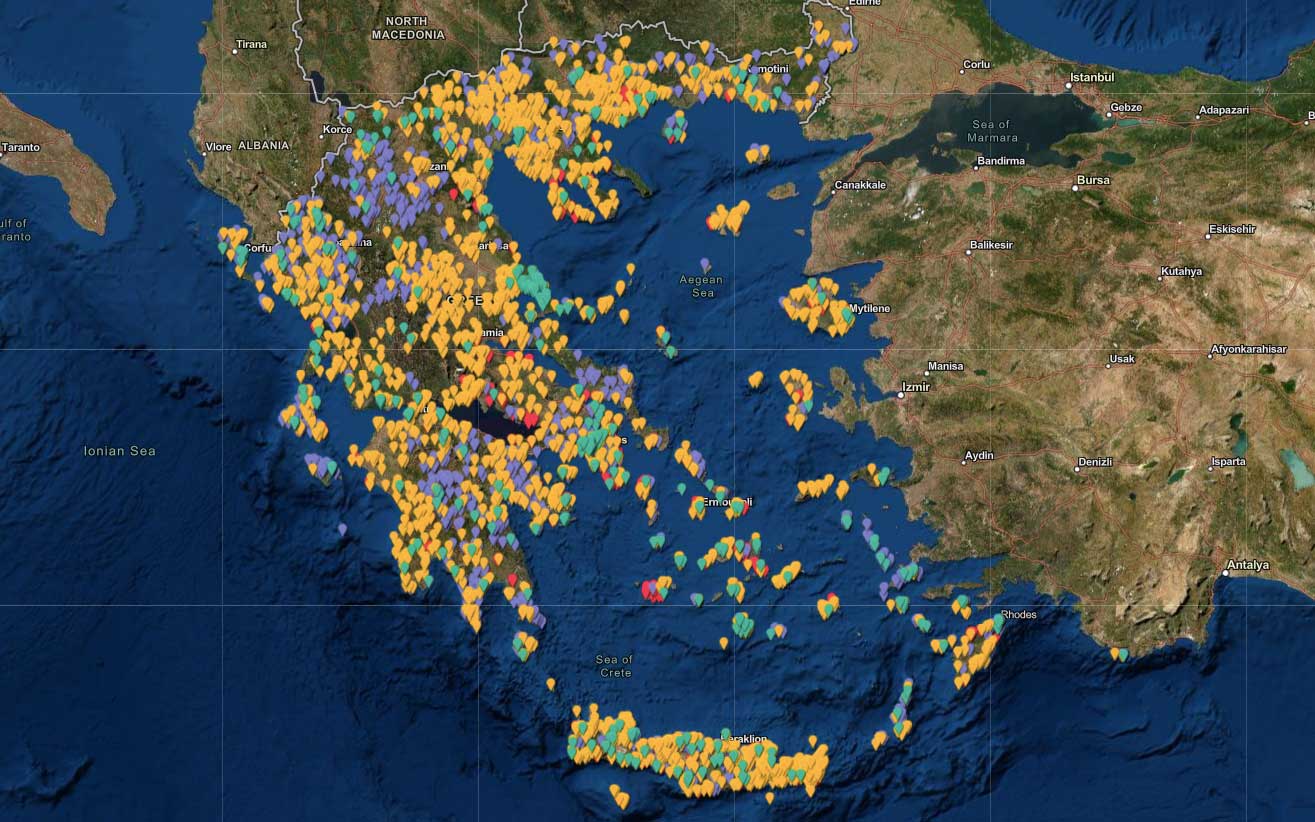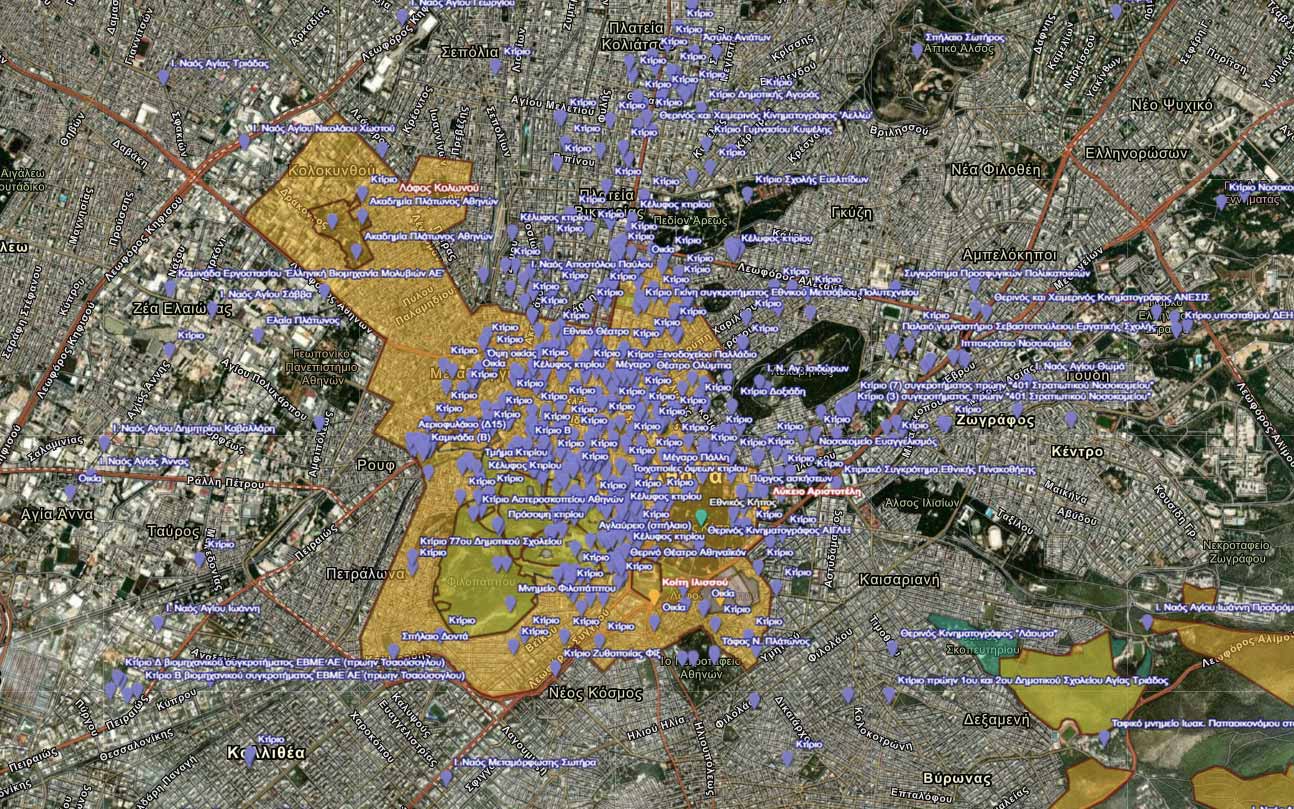Lefkada to Get New Archaeological Museum
The new museum will be located…

The public access cadastral map details information about 14,700 built monuments and 3,400 archaeological and historical sites in Greece.
© National Archive of Monuments
In 1980 the then Culture and Science Minister Dimitrios Nianias declared Mt Paggaion in Kavala an archaeological site. The designation related to “all of the mountain where caves, petroglyphs and ancient gold mines have been located.” At the time the declaration was verbal and did not include location coordinates, which predictably caused major problems in subsequent years with the mines operating in the area.
Such problems were common among Culture Ministry services and private citizens who often had disputes with the archeological service over the location of archaeological sites in relation to their land or businesses. The Archaeological Cadastre published last week comes to put an end to these headaches.
The new service gives the public access to a map of Greece covered in “pins” of various colors, each indicating a different type of site: purple for monuments, red for conservation zones, green for historical locations and orange for archaeological remains. Museums will soon be added to the map too.
By clicking on each location on the map, the user can access the archaeological file on a particular site, review the evidence, including photographs, measure the distance between a plot of land and a monument, and check whether a plot is contained within an archaeological site or conservation zone which would prohibit building.

The public access map showing part of downtown Athens.
© National Archive of Monuments
The portal of the archaeological cadastre at www.arxaiologikoktimatologio.gov.gr contains 14,700 built monuments, 3,400 archaeological and historical sites and 844 conservation zones, comprising 32 terabytes of digital data which will be added to over time.
The project began in 2011 and absorbed two EU grants and 5.8 million euros of funds. Last week it was delivered to the public. Together with the digital artefact collections, this marks the completion of the Culture Ministry’s two major digital projects, at a total cost of 15 million euros.
Digital transformation was a strategic choice for the ministry, noted Culture Minister Lina Mendoni, starting a decade ago and supported by successive governments, “with the exception of a brief, incomprehensible, backward-looking period between 2018 and 2019”, she added, in a pointed reference to her predecessor at the ministry, SYRIZA’s Myrsini Zorba.
The new museum will be located…
By permission from the Swedish government,…
The much-anticipated Museum of Aigai opened…